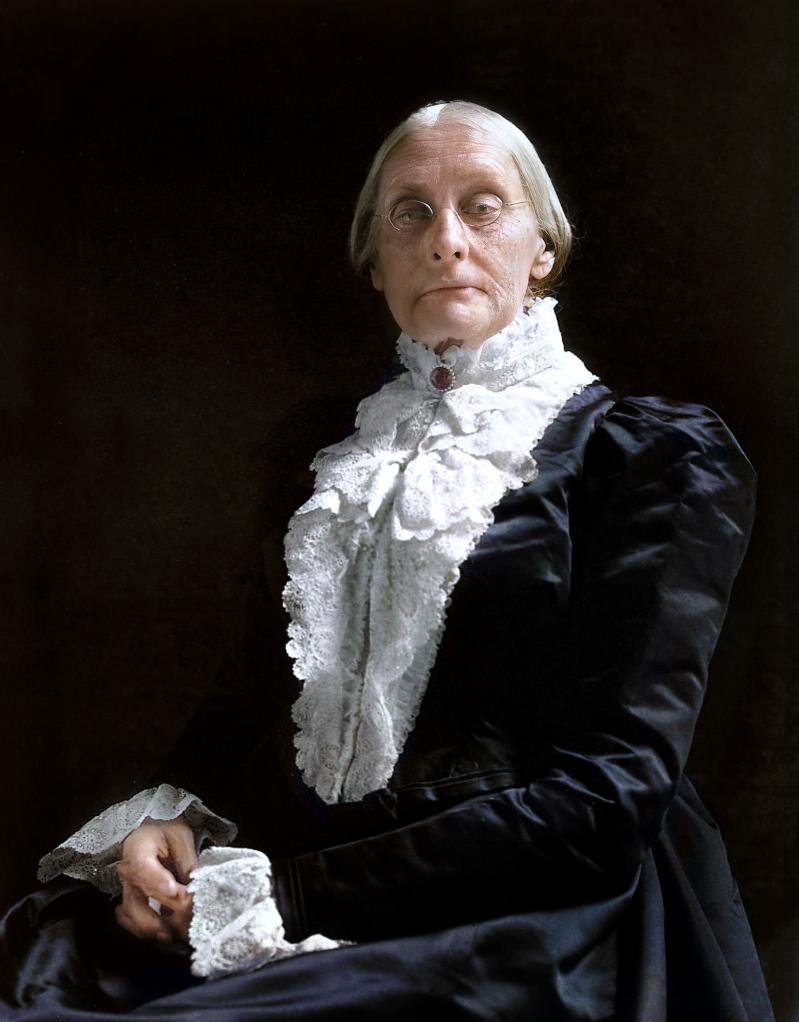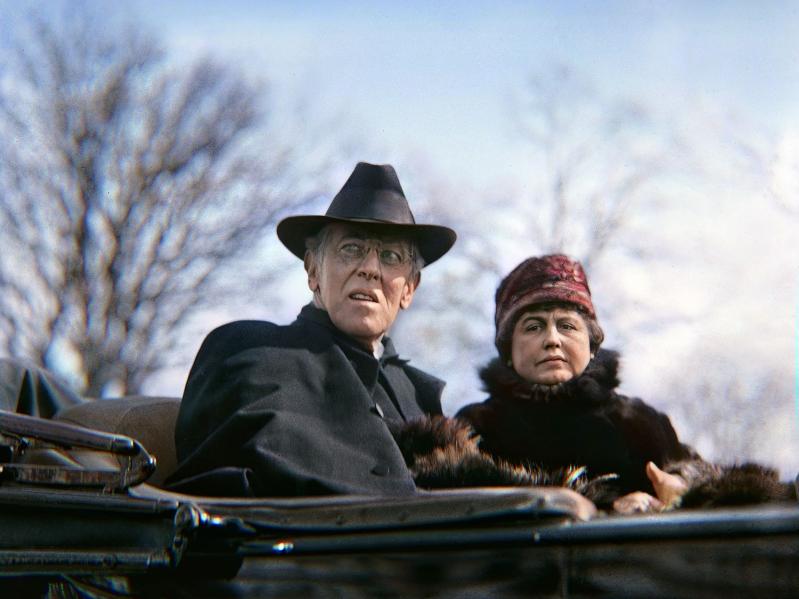“Woodrow Wilson: The Light Withdrawn”
Christopher Cox
Simon & Schuster, $34.99
Donald Trump, it turns out, is not the only American president ever shamed by removal of his name from prominent buildings.
For Trump, the process began in 2016 as many owners of residential units in half a dozen Manhattan towers bearing his name grew uncomfortable with his presidential aspirations and fulminations, or what they felt was a related drop in rental and resale value of their properties, or both.
In 2020, the trustees of Princeton University removed the name of Woodrow Wilson, its former president and America’s 28th (1913-21), from the eminent School of Public and International Affairs there, and from the very first residential college on campus.
They could no longer ignore belated accounts of the long-dead Wilson’s persistently prejudiced views on race (he defended his resegregation of the federal bureaucracy as a benefit to both Blacks and whites) and the limits he favored on voting — or most any public/political activity — White Males Only.
“This university and its School of Public and International Affairs must stand clearly and firmly for equality and justice,” Princeton President Christopher L. Eisgruber explained at the time of un-naming.
Some also might see parallels between the misogyny they find threaded through Trump’s history, including some current cabinet nominations, and Wilson’s long opposition to enshrining women’s right to vote in the U.S. Constitution (known first as the “Anthony Amendment” after the antislavery and suffrage leader Susan B. Anthony). As with Trump on abortion, Wilson argued it was a matter for each state to decide.
In principle, universal suffrage was “the foundation of every evil in this country,” Wilson held, concerned about voting by non-whites and non-males he felt less competent and intelligent. Marriage alone, he wrote, was a woman’s “essential condition” for performance of “her proper duties.”

Wilson was long “willfully oblivious to the growing movement in America for women’s equal rights to education, work, and voting,” as Christopher Cox describes him in “Woodrow Wilson: The Light Withdrawn.” The title is a line from John Greenleaf Whittier’s 1850 poem “Ichabod,” lamenting the noble Daniel Webster’s surprise support of the Fugitive Slave Act, authorizing runaways’ capture and return.
Mr. Cox is a senior scholar in residence at the University of California, Irvine, also a lawyer and former congressman and chairman of the Securities and Exchange Commission. With exhaustive research, sometimes exhausting detail, but an eye for compelling human factors, he has produced what amounts to a double biography — of the ultimately successful women’s suffrage movement and of the unsympathetic Southern-born academic who would become the nation’s chief executive.
Wilson disdained Congress as a roadblock to pre-eminent presidential leadership, even as he won plaudits for notable reforms at home (lower tariffs, a Federal Reserve system, the antitrust Federal Trade Commission) and progressive foreign policy, including a key role in creating the League of Nations after World War I, for which he won the Nobel Peace Prize in 1919.
What he did not win, Mr. Cox reminds us, was Senate approval of the Versailles peace treaty including the League of Nations, of which more later.
Wilson’s way with words provided national notice early on, starting with his first two books: “Constitutional Government in the United States” and “A History of the American People.” The latter provided factual bones for his friend Thomas Dixon’s controversial novel “The Clansman: An Historical Romance of the Ku Klux Klan,” later an often protested stage play, and even later a groundbreaking screen version — renamed “The Birth of a Nation,” with quotes from Wilson’s book interspersed — which was reviled by many as “reprehensibly racist.”
Wilson’s successes — as president of Princeton, governor of New Jersey, then the first Southern Democrat to win the White House since 1848 — were due largely to persuasive public speaking, mastery of ambiguity, and comfort concealing uncomfortable realities.
He hid his distaste for advanced education of women in order to snare a teaching post at then-new, all-female Bryn Mawr College (his only offer), which he left abruptly to teach mostly male students at Wesleyan in Connecticut. But his tense relationship with M. Carey Thomas, the brilliant Bryn Mawr president, continued for decades as she became an outspoken suffrage leader.
Geography was also a factor. Born in Virginia to a slave-owning family, raised during despised Reconstruction in Georgia, Wilson’s views on race made him understandably popular in the South; heading Princeton made him acceptable to Northerners as a compromise presidential nominee at the 1912 Democratic Convention, after a near-record 45 agonizing, inconclusive ballots.
In the White House, another Wilson-Trump parallel unfolded: marital misbehavior. Wilson cheated on his first wife, Ellen, before she died (at least in an emotional and epistolary sense), then cheated on the woman with whom he’d been cheating. As a widower, he ultimately married the third amour, Edith Galt, who as first lady helped run the Oval Office after Wilson’s debilitating stroke in 1919.
During his 1916 bid for re-election, Mr. Cox notes, Wilson campaign aides feared that one or more of his earlier, incessant, obsessive love letters (“my precious one, my beloved,” he called Mary Peck) would surface and undermine his chances. But money was paid, the Justice Department quietly intervened (Wilson himself later conceded), and there were no upsetting revelations.
Former President Theodore Roosevelt, one of Wilson’s opponents in the 1912 election, heard about the threat but joked that the public would never have believed such behavior by a man who looked like “an apothecary’s clerk.”
Real drama in the 1916 campaign featured violence, most fiercely by Wilson Democrats against suffragist supporters of his Republican opponent, former Supreme Court Justice Charles Evans Hughes. At a late campaign stop in Chicago, a mob of hundreds beat the protesters with canes and umbrellas, seized their banners, ripped their clothes, and left them “knocked down and trampled” in the street as Wilson with a “petulant tut tut,” The Chicago Tribune reported, “rolled aloofly by.”

Anti-suffragist violence only escalated after Wilson won. Foreshadowing the recent failure of abortion bans to determine the 2024 election, the razor-thin outcome in 1916 was determined by the votes of men and women (where state law permitted) who found suffrage less compelling than Wilson’s pledge to keep America out of the world war spreading in Europe.
Of course Wilson well knew he could not keep that promise with Americans abroad under increasing threat and domestic sympathies turning more toward the Allies. “I cannot tell them now,” he admitted to a top aide. But with conditions “getting desperate for the Allies,” as he admitted off the record, the re-elected president called on Congress to declare war in April 1917.
After which as president he was able to redefine the escalating protest of his anti-suffrage policy as near-treasonous undermining of his wartime leadership. He approved the arrest, conviction, and up to months of often scandalously brutal imprisonment for women who stood as “silent sentries” with banners at the White House fence (and suffered more mob attacks there). The obvious government overreaction was later ruled illegal by a federal appeals court.
Expanding the role of the Secret Service to provide him intelligence on the suffragists and their plans, Mr. Cox reports, Wilson also tacitly arranged with top newspaper editors to have coverage of them downplayed, and he set up a formal commission to generate countervailing government views (even in Hollywood feature films) to support war-related censorship.
The turning point came in November 1917, when New York became the 13th state to adopt female suffrage, with more presidential electoral votes than any other — an indication the Anthony Amendment might be nearing enough support to pass in Congress.
Many Democrats feared their party would suffer if it stood in the way, and a key group spent nearly an hour on their feet at the White House begging Wilson (who never offered them seats) for even the slightest public support.
He compromised with political reality by ghostwriting their statement that he “very frankly and earnestly advised us to vote for the amendment as an act of right and justice to the women of the country and of the world.”
Still, in subsequent House debate, Democratic opponents had no problem quoting earlier Wilson rejections of it. The amendment reached the required two-thirds margin in the House by just a single vote on Jan. 10, 1918, but failed by two votes in the Senate that September despite Wilson’s long-delayed outspoken support for it as “vital to the winning of the war” in which women now played notable home-front roles.
Suffragist efforts continued, but were overshadowed by problems with the war, then Wilson’s principal passion for shaping the peace with his idealistic Fourteen Points and League of Nations. And in between, the great Spanish Flu epidemic forced lengthy adjournment of both House and Senate so substantial progress was impossible.
As for the League, Wilson had prompted Senate hostility by staying months in Europe to design the lengthy, complex package (longer away than any president before or since, and ignoring major financial crises). And so angered was he by a modest wording change in the proposed Senate approval — not in actual terms of the treaty or the League — that he ordered members of his own Democratic Party to tank it.
On numerous occasions Wilson was advised to reach out to one or another senator who might be won over to the Anthony Amendment, but he refused or sent just a tepid sentence or two. Suffrage began regaining momentum with a wave of Republican victories at the state level that flipped the Senate from against Anthony to for it, with two more votes than the two-thirds required for passage on June 4, 1919.
Wilson was actually in Paris at the time. And home the next year, so debilitated by long-developing but little-reported medical problems, he was not involved in a flurry of telegrams to leaders in states still needed to ratify the Anthony Amendment.
But the message that ended up mattering most went to an uncommitted Republican, Harry Burn, in the Tennessee House of Representatives on Aug. 18, 1920, from his mom: “Dear Son, vote for suffrage and don’t keep them in doubt.” That vote made his state the required 36th to finally put the amendment into effect.
After the White House, Wilson suffered through a long, never complete recuperation. In 1922, considering the likely impact of women voters in approaching midterm elections, he said, “I shall be very much disappointed in them [if] they have forgotten that they are chiefly indebted to me for the suffrage.”
He died two years later, seriously debilitated, largely disconnected, clearly at least a bit self-deluded. Thank Mr. Cox for the fuller story.
David M. Alpern was a reporter, writer, senior editor, and network radio host for Newsweek magazine. He now presents author interviews for local libraries near his home in Sag Harbor.
Woodrow Wilson summered in Sagaponack while he was a professor at Princeton.

